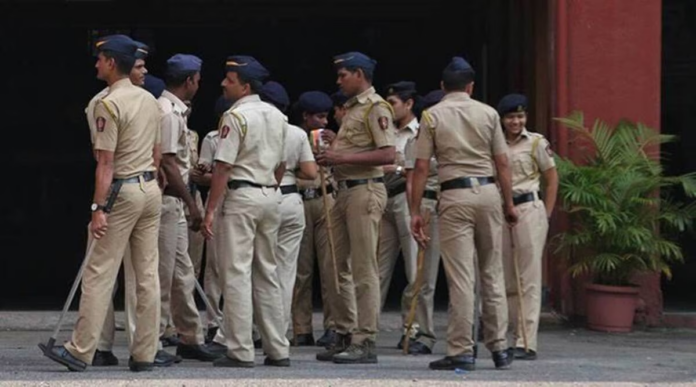The tragic death of a 57-year-old contractual employee of the Maharashtra Excise Department has highlighted the growing issue of loan repayment harassment in Mumbai. The man, who had been facing relentless pressure from private moneylenders, took his own life by jumping in front of a local train at the GTB Nagar railway station on Sunday.
Mounting Financial Troubles
The victim, a resident of Pratiksha Nagar in Sion, Mumbai, had borrowed ₹3.5 lakh from Manisha Dethe, a resident of Sardar Nagar in Sion Koliwada. The loan, taken at a staggering 9% monthly interest rate, quickly snowballed into a much larger debt. Initially borrowed to sustain a food and milk business that suffered losses during the COVID-19 pandemic, the loan became a source of immense stress for the victim and his family.
According to the FIR filed by the victim’s 23-year-old son, the initial monthly installment of ₹31,500 was unmanageable. Over time, the unpaid amount compounded with interest, eventually reaching ₹7 lakh. The victim’s inability to keep up with these demands forced him to seek additional loans from other sources, further deepening his financial woes.

Harassment by Lenders
As the financial strain grew, so did the harassment from the lenders. The Dethe couple, including Manisha and her husband Sudhir, allegedly visited the victim’s house frequently, hurling abuses and threatening him in front of his family.
Adding to the burden, the victim’s elder son borrowed ₹3.5 lakh from another woman, but this amount was also claimed by the Dethes. In desperation, the victim borrowed another ₹5 lakh from a third party, Vidya Chatur, and handed it over to the Dethes. However, the harassment continued unabated.
The Final Hours
On December 21, Manisha Dethe reportedly visited the victim’s residence, refusing to leave until the loan was repaid. Fearing further confrontation, the victim stayed away from home until late Saturday night. Tragically, by the morning of December 22, he decided to end his life by jumping in front of a moving local train.
His wife’s attempts to reach him revealed the devastating news. A call to his mobile phone was answered by a police official who informed her that the victim had been injured in an accident. By the time his family reached the KEM Hospital, the victim had been declared dead on arrival.
A signed suicide note found in his pocket detailed the relentless harassment he faced and named those responsible.
Legal Action and Arrests
Following the incident, the Railway Police registered a case against the Dethes and Vidya Chatur at the Wadala railway police station. Charges include abetment of suicide, intentional insult with intent to provoke a breach of peace, and other sections of the Bharatiya Nyay Sanhita (BNS).
The police have also confirmed the existence of evidence, including the suicide note, which strengthens the case against the accused.
A Growing Concern
This tragic case sheds light on the darker side of informal lending practices in India, where exorbitant interest rates and unregulated transactions often lead to devastating consequences. Financial pressures exacerbated by the pandemic have pushed many individuals and families into debt traps, leaving them vulnerable to exploitation and harassment.
The issue also raises questions about the lack of legal and social support for victims of loan harassment. While informal lenders provide quick access to funds, the absence of regulatory oversight often results in abusive practices that go unchecked.

Community and Public Response
The incident has sparked widespread outrage, with many calling for stricter regulations on private moneylenders and better support systems for those in financial distress. Community leaders and activists have emphasized the need for awareness campaigns to educate people about the risks of informal loans and the importance of seeking legal recourse in cases of harassment.
Social media platforms have been flooded with messages of support for the victim’s family and calls for justice.
Addressing Loan Harassment
This tragic incident underscores the urgent need for systemic reforms to prevent such occurrences in the future. Key measures include:
- Regulating Private Lending: Establishing guidelines for interest rates and repayment terms to prevent exploitation by private moneylenders.
- Financial Counseling: Providing individuals and families in financial distress with access to counseling services to explore viable repayment options and manage debt effectively.
- Stronger Legal Protections: Implementing stricter penalties for harassment and ensuring prompt action against offenders.
- Public Awareness Campaigns: Educating the public about their legal rights and available resources when facing financial harassment.
A Call for Change
The death of the excise department employee is a grim reminder of the devastating impact of unchecked loan harassment. It highlights the need for collective action to ensure that no individual feels forced to take such an extreme step due to financial pressures.
The case serves as a wake-up call for policymakers, law enforcement, and society at large to address the root causes of financial exploitation and create a safer environment for those in need. Only by fostering a culture of accountability and support can we hope to prevent such tragedies in the future.

